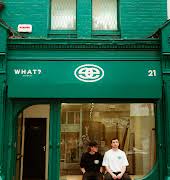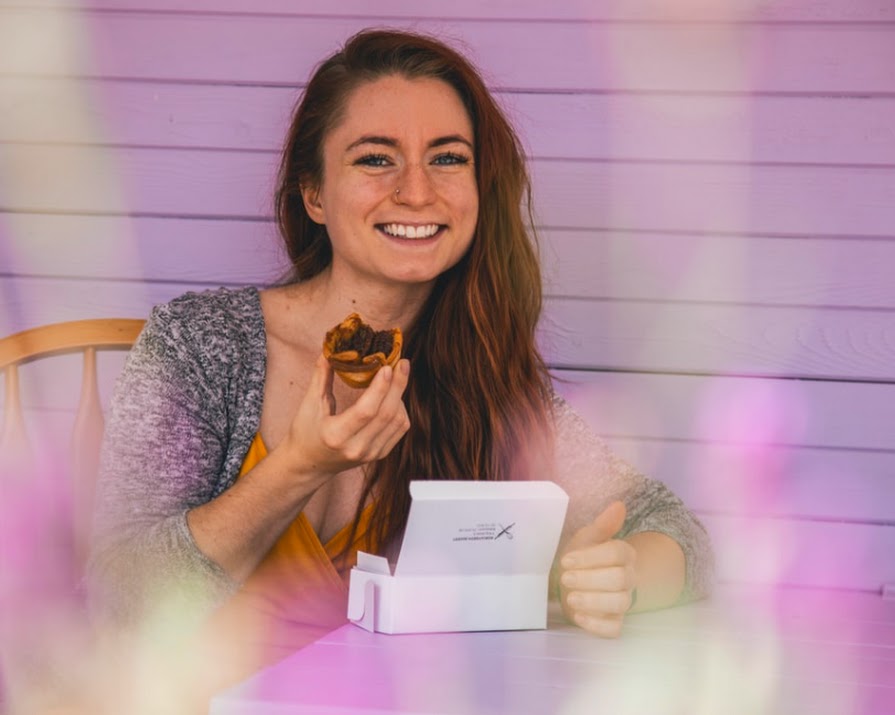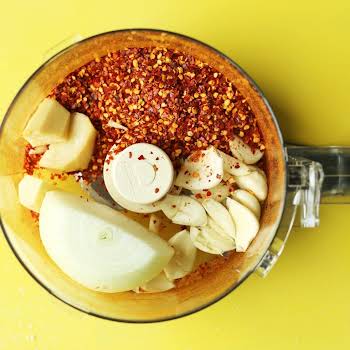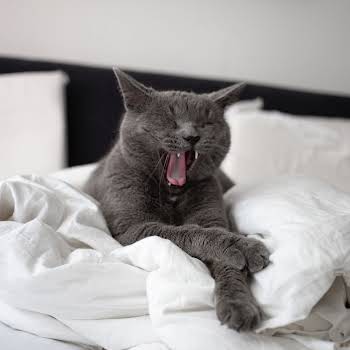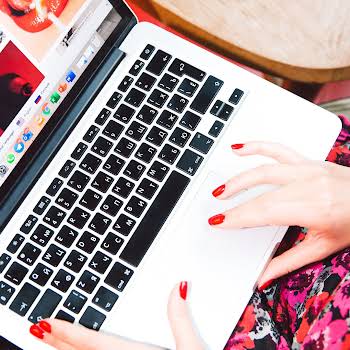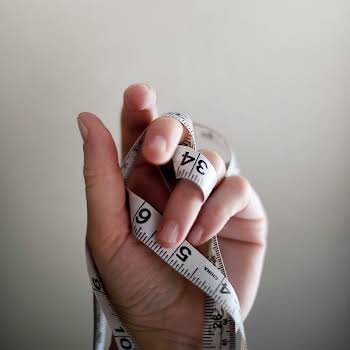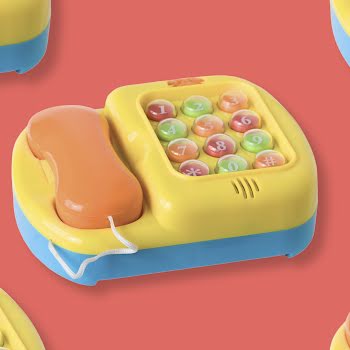
We’ve worn a path to the fridge and reached for the wine… a lot since we went into lockdown last March. Now Harley Street nutritionist Kim Pearson has these recommendations for staying healthy while stuck at home.
Today I homeschooled like an actual professional teacher and walk-jogged my 5k. Yesterday, I bawled over an ad on the bus-stop for healthcare workers and spoon-fed myself Nutella from the jar.
In other words, this pandemic has caused pandemonium with our feelings. We are high, we are low, we are sick of banana bread and Netflix, we are drinking gin on Tuesdays, we have roots and straggly eyebrows and the children Just. Won’t. Stop. Fighting.
All we want is a couple of hugs, a fancy dinner out, and a permanent childminder.
Naturally, when any good crisis hits, we often find ourselves opening the fridge, closing it again, making toast, and then reaching for the chocolate despite the fact we’ve eaten our body weight in pasta pesto just moments before.
It is natural to treat food as a reward when there is not much else to look forward to. Being stuck at home means we have constant access to pretty much whatever we want, all of the time.
And while the quest for being thin is something that has unfortunately been hero-worshipped by a certain cohort in society, here, we are talking about feeling more like ourselves by finding the holy grail of balanced healthy eating.
So we spoke to Harley Street nutritionist Kim Pearson about addressing emotional eating.
Snack attack
First of all, Kim points out that the problem is when we start eating even though we are not hungry. “Most of us know what a healthy diet consists of – but that doesn’t mean we always find it easy to stick to. There are many factors that influence our eating behaviour. Under periods of stress many of us turn to comfort food, despite being aware that this isn’t in the best interests of our health or weight.”
The problem too is that our daily routine has gone out the window. Kim suggests creating a new one. “Ask yourself what is your day going to look like now? What time will you get up? When can you build in time for exercise? When will you eat meals? Write it down if it helps — the more detail the better. Routines help us develop good habits that are in line with fulfilling our goals while helping to ditch habits that do not serve us well.”
Ditto when it comes to sleep. The constant news-checking and social media scanning has led to many of us experiencing pretty unusual and vivid dreams – proof that our sleep is being impacted by the current health crisis.
Sweet dreams
“When we don’t get enough good quality sleep it can cause us to eat more, and feel less satisfied with the food we do eat,” explains Kim.
“This is down to the impact sleep has on our hormones. Lack of sleep causes our body to produce more ghrelin (our ‘hunger hormone’) and less leptin (our ‘satiety hormone’).
“If you’re constantly tired you’re likely to be fighting a losing battle. If you struggle with getting to sleep, ensure you’re not drinking caffeine too late in the day (switch to caffeine-free drinks by midday at the latest) and aim to turn off screens at least 30 minutes before bedtime. Identify how much sleep your body needs to feel good and work on getting to bed in time to ensure you get enough.
“Many of my clients find it helpful to set an alarm in the evening to remind them to finish up what they are doing and head to bed.”
And if you are sick to death of eating the same old recipes, try to mix them up. Don’t forget healthy food doesn’t have to be boring. Now might be the time to look up new and more creative dishes for you and those around you.
Switch it up
Kim says psychologically it is about not feeling deprived. “One thing I really encourage my clients to do is be creative and find some easy, healthy dishes that quickly become staple dishes to add to your repertoire. Think flavour-rich dishes like Thai and Indian curries served with cauliflower rice, salads using leftover roast Mediterranean vegetables and tasty stews with seasonal veg. One of the keys to long-term weight loss success is to enjoy healthy food so that you don’t feel like you’re deprived or missing out.”
The emotional part of wanting to use food to find contentment is particularly challenging at the moment. Kim suggests asking yourself if you are genuinely hungry before reaching for the snacks. “We often turn to snacks for reasons other than hunger. You can also avoid snacking by structuring your meals properly to prevent blood sugar fluctuations.
“Rather than a base of a starchy carb like pasta for your meals, your meals should be built from a healthy protein with plenty of vegetables to up the nutritional value and a healthy fat source for slow release energy rather than a carb-induced sugar-crash.”
So instead of making a dent in your weekly treat supply, you can substitute some of the goodies for healthier versions.
“Swap sweets and biscuits for a handful of fresh berries with a few creamy cashew nuts. Swap roasted, salted nuts for olives or kale crisps. Swap crisps and dips for vegetable crudités with guacamole. Prep these in advance so that you aren’t tempted to reach for an easier, less healthy alternative.”
Get creative
There are many reasons why we eat when we are not hungry – boredom, stress, loneliness, as a reward. Keeping a food diary can also help if this is genuinely getting you down. Make sure to note down how you’re feeling as well as what you’re eating.
Then find healthier ways to address these needs. Bored? Go out for a walk or pick up on a hobby or activity. Stressed? Listen to a ten-minute guided meditation. Feeling isolated? Call a friend or organise a ‘HouseParty’.
Another aspect that is showing up as we continue to lock down is the amount we are reaching for a drink. In fact, sales of alcohol are up by as much as 20% according to recent figures.
I often ask, ‘what are you doing to look after yourself in all of this?’ Cue a pause and my client responds ‘well, nothing really’
Snooze the booze
Alcohol is a mild sedative but it is also a depressant that affects the central nervous system. Alcoholic drinks can also contain a lot of hidden sugar and increase our levels of the stress hormone cortisol which is unhelpful at the moment. Try to keep an eye on how much you are drinking.
Finally, make sure you are fitting in some self-care time. Remember that stress is always in the background at the moment and you have many people asking a lot from you – family, work, school.
Kim says it is one of the most important parts she plans out with her clients. “Many of my clients are busy women, juggling careers and family life, leaving little time for themselves. I often ask, ‘what are you doing to look after yourself in all of this?’ cue a pause and a response something like ‘erm, well, nothing really’.
Self-care
When we don’t make time for self-care we can quickly become depleted and reach for foods to ‘top up the tank’ explains Kim. “Self-care is all about what feels right for you, whether it’s spending half an hour reading before bed, taking a bubble bath, doing a creative course or working on self-development. Scheduling some type of self-care activity into your daily life is more important than ever right now.”
But equally, don’t give yourself too much of a hard time when it comes to staying on top of things. Our days are a haze of social distancing, juggling computers, homeschooling and howling silently into pillows. We will get back to our new normal someday soon and in the meantime, stay safe and well.
Photography by Unsplash.







